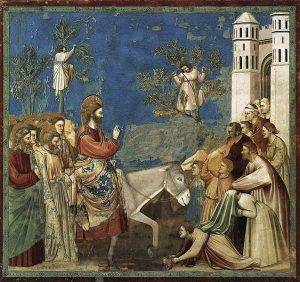“Many mortals, vainly devoted to study and worldly acclaim, have then sought to immortalize their reputation, or so they believed, by using their pen to give an account of the lives of famous men. But although this did not bring them everlasting fame the hopes they had conceived did however bear some small fruit because they prolonged their memory, although in vain, and by presenting the examples of great men they stimulated in their readers a considerable desire to emulate these people. However, these concerns were irrelevant for that blessed and eternal life.” Sulpicius Severus, Preface to Life of Martin of Tours in Early Christian Lives, trans. and ed., Carolinne White (London 1998), p. 135.
Sulpicius Severus (d.c.425) wrote this holy biography of Martin of Tours after meeting the saint in the early 390s. Following St Martin’s advice, Sulpicius renounced his elite Roman life, sold most of his property, and lived in a quasi-monastic state. In addition to the life of St Martin, Sulpicius wrote the Chronicles, a sacred history from the beginning of the world. His Life of Martin of Tours laid the foundation for the medieval genre of hagiography (saints’ lives).
In the preface, Sulpicius explained why writing the holy history of a saint surpasses writing the history of famous Romans. He seems to have Sallust’s introductory remarks to Catiline’s Conspiracy in mind. Sulpicius demonstrates his own rejection of the pagan Roman past and the search for worldly fame. Therefore, in his Life of Martin of Tours, Sulpicius explains that he wants to write the history of holy man to be an example for those in his own time and for future Christians. He explained:
“It would serve to rouse the enthusiasm of its readers for the true wisdom, for heavenly military service and for divine heroism. In doing so we will also be pursuing our own advantage in such a way that we may expect not empty renown from our fellow men but an everlasting reward for God. For even if we ourselves have not lived in such a way as to be an example to others, we have at least made an effort to prevent a man who deserves to be imitated from remaining unknown.” Ibid., pp. 135-36.

